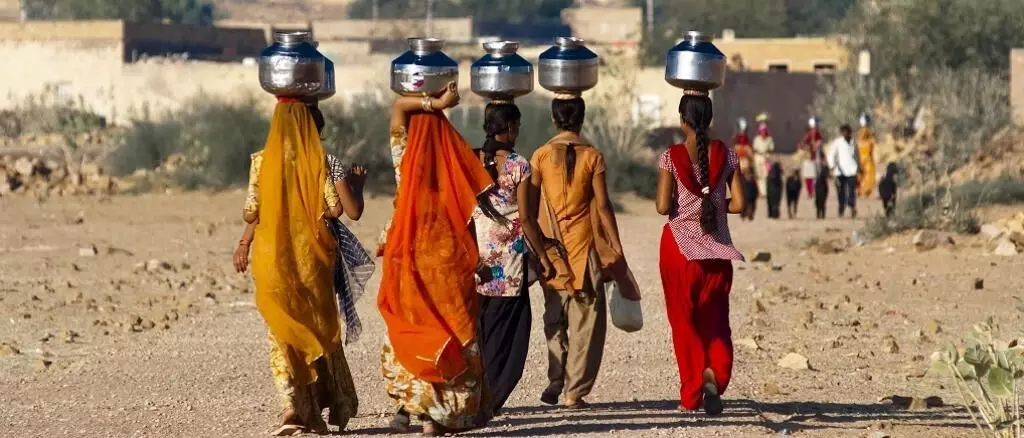Overdue alleviation
As women remain the worst sufferers of climate change, a holistic approach that prioritises the inclusion of women in climate policies and actions is needed

According to a study by the International Food Policy Research Institute, climate change is projected to reduce agricultural yields in India by 18.6 per cent for wheat and 10.8 per cent for rice by 2050. Women account for over 60 per cent of agricultural workers in India and are responsible for up to 90 per cent of the post-harvest work. In terms of access to water, a UNICEF report found that women and girls in India spend 150 million hours collecting water each day, which is equivalent to a workforce of one million people.
Climate change is further exacerbating water scarcity, with over 600 million people facing high to extreme water stress. According to the Global Burden of Disease report, outdoor air pollution is responsible for over 1.2 million premature deaths in India each year, with women and children being the most affected. Climate change is expected to increase the frequency and severity of heat waves, which can cause dehydration, heat exhaustion, and heat stroke. The data from the Internal Displacement Monitoring Centre states that India had the highest number of people displaced by climate-related disasters in 2019, with over 5 million people affected. Women and girls are particularly vulnerable to the negative effects of migration, including trafficking and exploitation.
The World Bank report reveals that India has experienced an early heat wave due to climate change. Researchers have argued that climate change has affected women and children disproportionately, especially those living in low-income communities and developing countries. The area of livelihood is also not spared from the impact of climate change. The World Wildlife Fund has projected that climate change will reduce fish catches in India by up to 10 per cent by 2050, affecting the livelihoods of over 40 million people. Women in fishing communities are often responsible for processing and selling fish; thus, their economies and livelihoods would also be affected.
These statistics reveal that women are more vulnerable to the effects of climate change due to their social and economic status. Moreover, they often face significant barriers to accessing resources and decision-making processes related to climate change adaptation and mitigation. Policymakers and international organisations need to prioritise gender-responsive approaches to climate change adaptation and mitigation and ensure that women’s voices and perspectives are heard and taken into account. Scholars have acknowledged that in developing economies such as India, a significant proportion of women who are engaged in livelihood activities are dependent on natural resources and do not own productive assets. Their dependence on men for financial information makes them economically vulnerable. Therefore, the private sector can play a critical role in addressing this problem by investing in women-centric resilient climate measures and by promoting and investing in Micro, Small and Medium Enterprises (MSMEs). Women’s knowledge of natural resources and ability to find overarching solutions can create co-benefits and provide attainable ways to achieve gendered climate justice. India can also work towards promoting gender-sensitive climate education, which can help raise awareness of the gendered impacts of climate change and promote gender equality.
Additionally, investing in gender-disaggregated data collection and analysis can help policymakers understand the gendered impacts of climate change, and allow them to make evidence-based decisions. Overall, achieving gender and climate justice in India requires a holistic approach that recognises the intersectionality of these issues and prioritises the inclusion and empowerment of women in climate policies and actions. The disregard of women as a vital stakeholder in climate policies and gender blindness will undermine the results and aims of the policies.
Views expressed are personal



